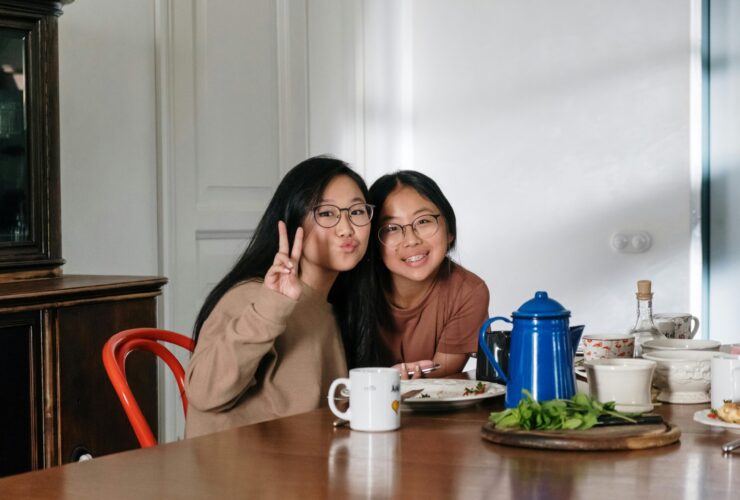Growing up with emotionally immature (EI) parents often leaves adult children with lingering confusion, frustration, and self-doubt. EI parents may have been reactive, dismissive, self-centered, or simply emotionally unavailable. They often lacked the capacity to attune to your feelings or needs. As a child, you may have developed coping mechanisms just to feel safe, seen, or stable. One major way this shows up is through how we internalize or externalize problems.

Internalizers vs. Externalizers
Children of EI parents generally fall into one of two coping styles: internalizing or externalizing. Internalizers believe that they are responsible for fixing problems. If something goes wrong, they automatically look inward: What did I do wrong? How can I make this better? Externalizers, on the other hand, focus outward: You need to change. This isn’t my fault. They assume that problems lie outside themselves and that resolution comes from changing others or the environment.
You may lean strongly toward one style, or you may notice a mix of both depending on the situation. These tendencies are not choices we consciously made—they’re often shaped by temperament and personality, and developed as survival strategies in response to the emotional climate we grew up in.
At their core, both styles are attempts to get emotional needs met. Internalizers hope that being “better,” quieter, or more accommodating will earn love or stability. Externalizers might act out or blame others in hopes of being seen, protected, or validated.
Reflecting on Your Style
Take a moment to reflect:
- Which coping style do you tend to rely on more—internalizing or externalizing?
- Do you recognize yourself in the traits described above?
- How has your style shaped the way you move through the world and relate to others?
Internalizers may be praised for being responsible and thoughtful, but they also carry deep emotional burdens. Many internalizers struggle with anxiety, depression, or a constant sense of being “not enough.” Externalizers might seem more assertive or even rebellious, but may find themselves in recurring conflicts or feeling stuck, frustrated that others don’t meet their needs.
Understanding your coping style is not about self-blame—it’s about self-awareness. Each style developed to help you survive a difficult emotional environment. But as adults, these automatic patterns may now be limiting your relationships, your emotional well-being, and your sense of agency.
Finding Balance

Both coping styles, when taken to the extreme, come with challenges. Extreme internalizers are prone to burnout and emotional distress. They may become overly accommodating in relationships, feel responsible for others’ feelings, and struggle to assert boundaries. On the other hand, extreme externalizers may experience repeated interpersonal conflict, blame others for personal problems, or avoid self-reflection. They may even develop physical symptoms from unprocessed stress.
The healthiest path forward is to integrate both styles—to find balance. Internalizers benefit from learning to seek help, trust others, and set clearer boundaries. Externalizers grow by building self-awareness, developing emotional regulation, and taking ownership of their part in problems.
Ask yourself:
- How might I balance out my current way of coping?
- What traits from the opposite style would be helpful for me to develop?
- How can I practice small shifts in how I respond when I feel hurt, stressed, or misunderstood?
The good news is that these patterns can shift. Healing begins with awareness and a willingness to try new responses—ones that honor both your needs and your limits. Working with a therapist, joining a support group like our Adult Children of Emotionally Immature Parents Support Group, or exploring resources can all be valuable steps toward growth.
If you’re navigating life after growing up with emotionally immature parents, you’re not alone. Healing is possible—and it starts with understanding how you learned to cope and discovering that you have the power to choose differently now.
Relevant Resources
Yellow Chair Collective Podcast: Growing Up w/ Emotionally Immature Parents, Boundaries, & ADHD – Mina Yoon, MFT
Seek An Individual Therapist at Yellow Chair Collective in Los Angeles or New York
If you are seeking therapy specifically tailored to your needs, consider reaching out to the therapists at Yellow Chair Collective. We understand that there may be unique contextual factors that may influence your experiences.
At our Los Angeles, CA, and New York City, NY-based therapy practice, we have many skilled, trauma-informed, and culturally sensitive therapists who can provide an empowering therapeutic experience. For your added convenience and simplicity, we offer online therapy for anyone in the state of California or New York. We know that navigating your mental health journey can be challenging, and we want to support you along the way. Follow the steps below to begin.
- Fill out the contact form to get connected with us.
- Get matched with one of our culturally sensitive therapists.
- Start the next step in your healing journey today.
Other Services at Yellow Chair Collective
There are many options for treatment using online therapy in California and New York, it just depends on what you’re needing. And while we certainly service Asian American folks, we also work with individuals from other cultures, too. So, whether you’re needing support in overcoming anxiety, burnout, trauma, or PTSD, we can help. Likewise, we serve teens and couples in need of support, too. So when you start online therapy with us, you can bring your whole self, including past struggles, cultural impacts, and more.






